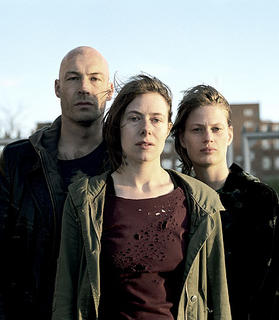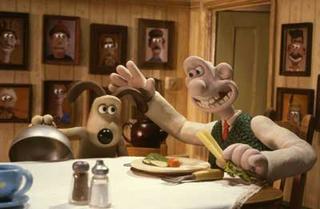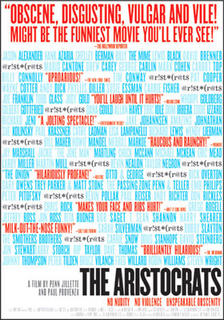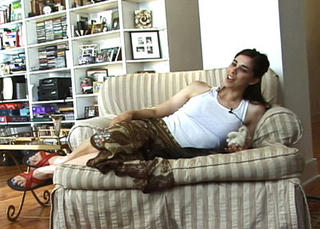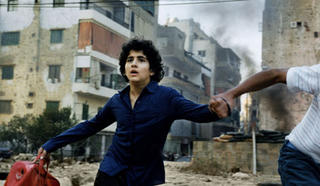Seen Lately
I was probably too optimistic about having the time to update this blog as much as before, now that I run a Swedish blog, but I will try and squeeze out these small capsules every once in a while.
Tigrero: A Film That Was Never Made (Mika Kaurismäki, 1994) - pro
Sam Fuller takes a trip to the Brazilian jungle to revisit a remote part of the Mato Grosso, where he was supposed to shoot a movie for Darryl Zanuck back in 53-54 called Tigrero, starring John Wayne, Tyrone Power and Ava Gardner. The movie never happened, for insurance reasons, but Fuller kept the footage from his personal location scoutings (later, he inserted parts of it in one of the more bizarre sequences of Shock Corridor!). With said footage as guiding light, Fuller tries to find his way back to the small Indian village he once visited, to see how much of it is still there. Along for the ride is Jim Jarmusch, who as it turns out is a perfect travel companion - his trademark cool and genuine interest and knowledge of Fuller's career matches Fuller's straight-shooting intensity. The film is bookended by a couple of ridiculous scripted scenes: Jarmusch pretending he doesn't know where Fuller is taking him, and so forth, in a half-hearted attempt to make it seem like a fictional film. Unnecessary and silly, but apart from that, it's a very interesting documentary.
***
Four Brothers (John Singleton, 2005) - pro-
This is probably the closest thing to a serious blaxploitation movie we're gonna get in this year of 2005. And I'm not talking about the pimping, funky, jokey school of blaxploitation, but the socially conscious, crime-themed ones, like Across 110th Street and Detroit 9000, almost completely stripped of any jive swagger. The cold city of Detroit is ripe with corruption, black and white cops are on the take, and there's a certain naïve outlook on power structures and hierarchies in the film - everything is sort of levelled and accessible, like in a modern, flat, project-oriented organization - which I find sympathetic. And there's plenty of gunplay. The soundtrack - consisting almost exclusively of Motown tracks from the 70's - incredibly enough doesn't feel tired but is employed in a rather loving and fresh way. Singleton even has the good taste to let Marvin's Trouble Man - an iconic piece of music, written for another movie to boot - play over most of the opening and credit sequence. It's too bad the movie surrenders to action clichés about two thirds in, but overall this is Singleton's best movie since Boyz N The Hood. Or, if you're not a fan of that one, his best ever. (Maybe not saying much, but still.)
***
Death Line (Gary Sherman, 1972) - mixed-
Eccentric London Police Inspector Donald Pleasence is investigating several cases of missing persons at the Russell Square tube station, when he unearths a plague-ridden colony of underground cannibals, in this cheap exploitation flick, which is relatively low-key and emphasises creepiness over gore. Big plus for Pleasence's grumpy performance and all the authentic underground locations, but the film doesn't deliver in the scare department. Equally unimpressive is a subplot (heh) concerning an American/British student couple who get tangled up in the goings-on. Christopher Lee makes a cameo appearance as an MI5 official. Known as Raw Meat in the US.
